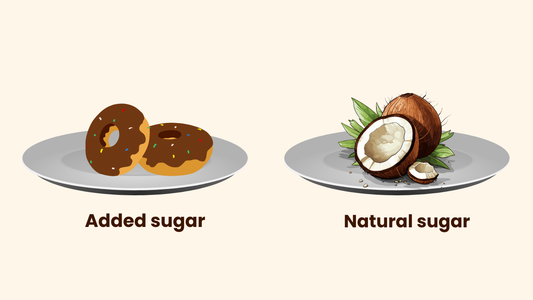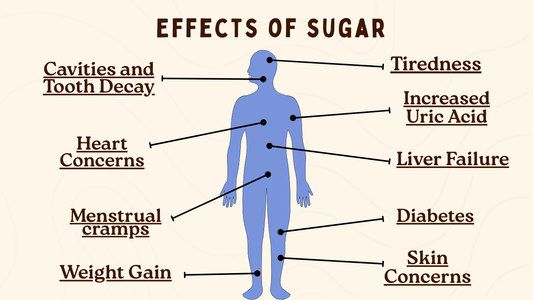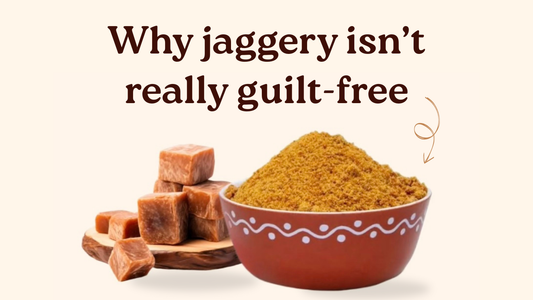Introduction: Why This Question Matters
Walk into any kitchen and you’ll find sugar in one form or another. But over the last few years, brown sugar has gained a reputation as the “better” or “healthier” choice compared to white sugar. Supermarkets market it as less processed. Recipes swear it’s richer. Some even believe it’s safer for people with diabetes. But is any of this actually true? Let’s break it down with research, not marketing.
What Exactly Is Brown Sugar?
At its simplest, brown sugar is just white sugar with molasses.
• White sugar is highly refined sucrose, stripped of molasses.
• Brown sugar retains some molasses or, more often, has molasses added back after refining.
That molasses is what gives brown sugar its characteristic color, moist texture, and caramel-like taste.
There are two main types:
• Light brown sugar (3–4% molasses)
• Dark brown sugar (6–8% molasses)
From a production standpoint, brown sugar isn’t “less processed.” It’s either partially refined or white sugar that’s been re-blended.
Nutritional Differences: Do They Matter?
Here’s what the numbers look like per 100 grams (USDA Database):
• White sugar: ~387 calories, 0 g fiber, trace minerals.
• Brown sugar: ~380 calories, tiny amounts of calcium, potassium, iron.
Yes, brown sugar has slightly fewer calories and slightly more minerals. But here’s the catch:
• You’d have to eat 100 grams (about 25 teaspoons!) to get even 5% of your daily mineral needs.
• In real life, we use sugar in teaspoons. At that level, the difference is nutritionally meaningless.
So the “healthier” label doesn’t hold up.
Glycemic Index & Blood Sugar Impact
Both brown and white sugar are essentially sucrose (a 50/50 split of glucose and fructose).
• White sugar GI: ~65
• Brown sugar GI: ~64
For your body, this is the same. Both cause a rapid spike in blood glucose and insulin. This is why neither should be considered a safe option for diabetics.
Flavor and Cooking: Where Brown Sugar Wins
Health aside, brown sugar does have culinary advantages:
• Adds moisture to baked goods (chewier cookies, softer cakes).
• Caramel-molasses taste adds depth to sauces, marinades, barbecue rubs.
• Better for recipes that need richness and density.
White sugar is better for recipes that need neutral flavor and crispness (meringues, sponge cakes, clear syrups).
So yes - brown sugar makes a difference in taste and texture, not in health.
Common Myths About Brown Sugar
1. “Brown sugar is unrefined and natural.
Not true - most commercial brown sugar is just white sugar with molasses added back.
2. “Brown sugar is healthier for diabetics.
False - the impact on blood sugar is almost identical.
3. “Brown sugar has fewer calories.
Technically yes, but the difference is tiny (380 vs 387 calories per 100 g).
4. “Brown sugar helps with digestion.
A common myth in India - no research supports this.
The Real Health Truth: Both Are Still Added Sugars
The World Health Organization (WHO) recommends limiting added sugars to less than 10% of daily calories - ideally 5%. That’s about 25–50 grams per day for most adults.
Whether you choose white or brown, your body processes them the same way. The real health benefits come not from switching colors, but from cutting back altogether.
Smarter Alternatives: Where Monk Fruit Fits In
If your goal is better health (weight control, blood sugar stability, long-term metabolic wellness), the answer isn’t brown vs white sugar. It’s finding alternatives that give sweetness without the metabolic punch.
This is where monk fruit sweetener stands out:
• Zero calories, zero glycemic impact.
• Naturally sweet from mogrosides, not glucose or fructose.
• Safe for diabetics, kids, and long-term use (research supports this).
At EPRA Farms, we focus on monk fruit blends that stay clean and natural - no artificial additives, no chemical aftertaste. Because the real shift isn’t swapping sugar shades, it’s breaking free from sugar dependency altogether.
Bottom Line: Does Brown Sugar Really Make a Difference?
• Taste? Yes. Brown sugar has richer flavor and better baking performance.
• Nutrition? No. The mineral content is negligible, calorie difference tiny.
• Health? No. Both spike blood sugar and count as added sugars.
So enjoy brown sugar if you love the taste in a cookie or curry. But don’t be fooled into thinking it’s healthier. When it comes to your body, sugar is sugar.





